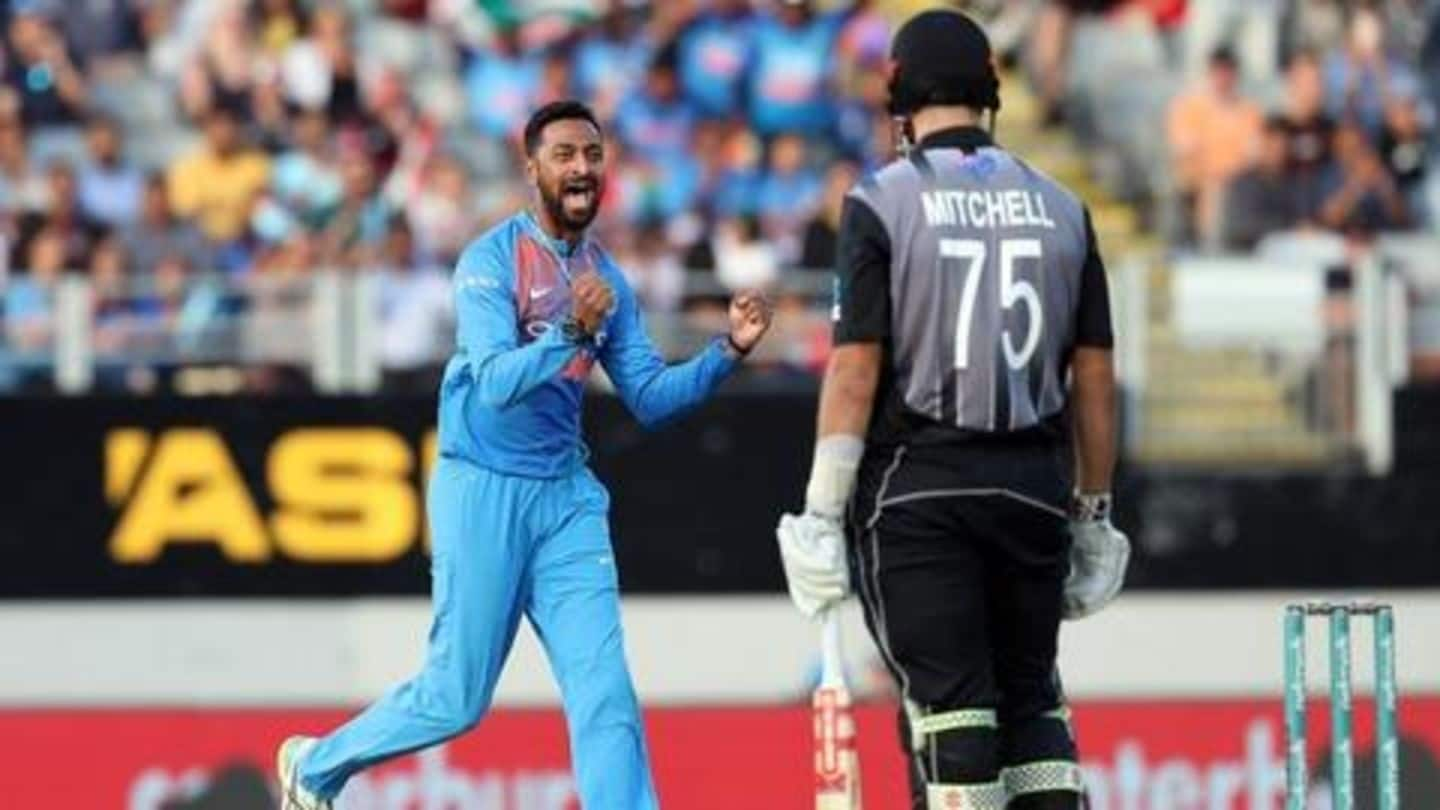
NZ vs IND: Daryl Mitchell's controversial dismissal mars second T20I
What's the story
New Zealand batsman Daryl Mitchell's dismissal, in the second T20I against India, has sparked a controversy. The LBW decision that went against him, after being referred to the third umpire, was a debatable one since Mitchell appeared to have edged the ball. New Zealand were batting first and Mitchell got out to leave the side at 43/3. Here's more about the incident.
Decision
Controversial incident took place in the sixth over
The controversial incident took place in the sixth over of the first innings. All-rounder Mitchell was given LBW off the bowling of Krunal Pandya. The youngster had tried to work the ball across his front pad but missed it. Pandya immediately appealed and umpire Chris Brown raised his finger. After discussing with Kane Williamson, the batsman decided to review the decision.
Controvery
Hot spot showed edge, but third umpire believed otherwise
Mitchell believed the ball had taken an inside edge and hence referred the decision. An edge was visible on hot spot and replays showed the same on the screen. Both teams had resumed their positions to carry on. However, the Hawk Eye showed three negatives and the LBW decision was upheld. Third umpire Shaun Haig told Brown to stick with his decision.
WIlliamson
Williamson stunned by umpiring howler
Williamson immediately showed his dissatisfaction after being stunned with the decision made by the third umpire. Brown and fellow umpire Wayne Knights discussed things between themselves and then also with the players from both teams. Mitchell was asked to walk back to the pavilion and the Kiwis lost the review as well. Williamson shook his head while certain sections of fans booed the decision.
Rohit
Rohit could have asked umpires to call Mitchell back
As per the revised ICC rules which came into effect in 2017, an appeal can be withdrawn and the umpires can then call a dismissed batsman back to the crease. This can happen any time before the next delivery is bowled. This implies that stand-in skipper Rohit Sharma could have asked the umpires to call Mitchell back, but he decided against it.